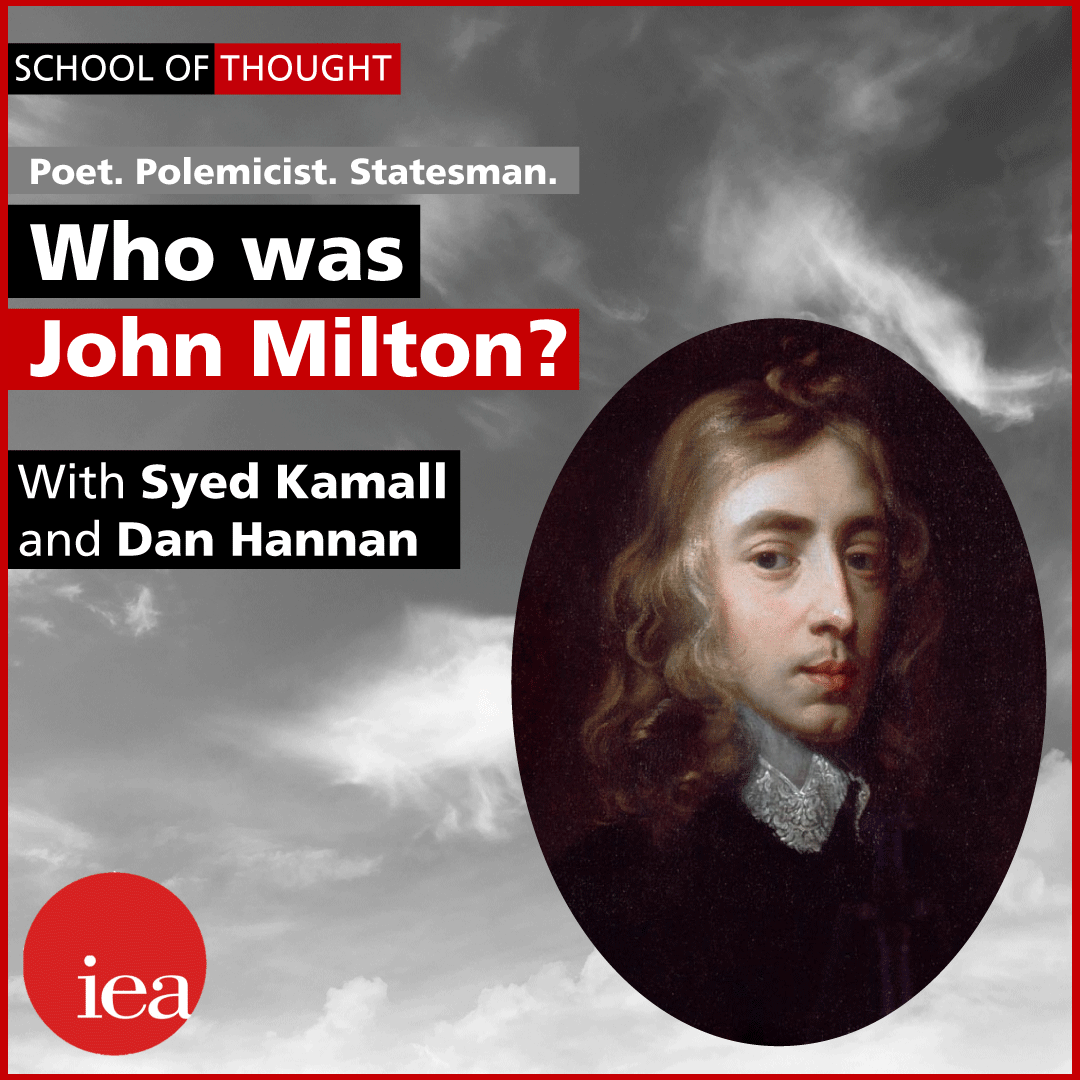May 23 2020 33 mins 40
Poet. Polemicist. Statesman. Who was John Milton? ‘School of Thought’ is the IEA discussion series based on ‘101 Great Liberal Thinkers’ by Dr Eamonn Butler. Each week, Syed Kamall - IEA Research Director - discusses classical liberalism’s role in bringing the modern world into existence, profiling the lives and ideas of some of the leading thinkers on individual liberty and examining their relevance today. In this week’s episode, Syed sits down with Dan Hannan, author, columnist, and President of the Initiative for Free Trade, to discuss John Milton. Best known for his religious epic Paradise Lost (1667), Milton also argued for the legality and morality of divorce, religious toleration and setting the church free from the political authorities. He stressed the political equality of individuals and saw government as an implied contract between rulers and the people. Milton advocated free speech and freedom of conscience (at least among Protestants), believing that people can distinguish right from wrong if they can hear the competing arguments in open debate. ‘Give me the liberty to know, to utter, and to argue freely’, he wrote, ‘according to conscience above all liberties’. After the execution of Charles I in 1649, Milton became a polemicist for the incoming republican government of Oliver Cromwell. But he soon became an open critic of the autocratic Cromwell, urging him to respect his regime’s implied contract with the people. Though no democrat, he dreamt of creating a more liberal republic (a ‘free commonwealth’); but in fact the monarchy was restored.
